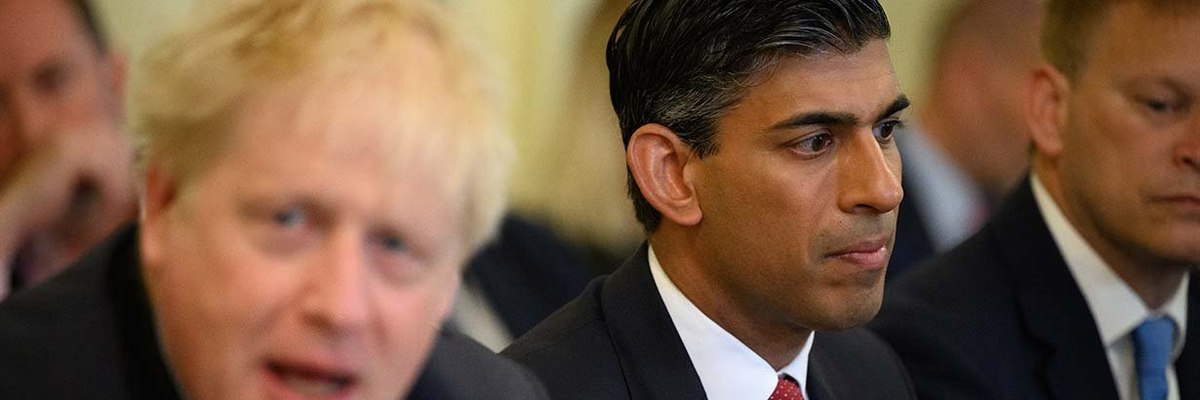One in five Tory members hold an unfavourable view of the former chancellor specifically because he helped depose the prime minister
Rishi Sunak’s resignation as chancellor turned a trickle of resigning ministers in July into a deluge, culminating in Boris Johnson stepping down and the third Conservative leadership election in six years.
This decision was received positively by the public at the time, with our snap poll showing people thought the chancellor was right to resign by 56% to 14%. Seven in ten (69%) also thought the prime minister should go. Indeed, following Sunak’s resignation, his personal ratings improved from -33 to -17, his best rating with the public in several months.
However, wielding the blade may have scuppered any chances Rishi Sunak had of wearing the crown, for the former chancellor’s fate rests not with the public but with the Conservative party membership.
A YouGov poll of Conservative members just prior to Johnson’s resignation found that while a similar number to the public (57%) thought the chancellor was right to resign, over a third (35%) thought this was the wrong decision; a sizable chunk of the electorate he would need to win over.
As the leadership election has gone on, the number of members thinking Sunak’s decision was the wrong thing to do has grown further still, reaching 51% in a membership poll conducted at the start of August.
How damaging was the resignation to Sunak’s reputation?
With just a couple of weeks before the results of the leadership election are announced, the latest YouGov polling puts Sunak on 30% to Liz Truss’s 57%, with 14% yet to decide how they will vote – but also finds that his personal popularity is far from optimal amongst a group who that should be his core supporters.
Approaching half of Conservative members (46%) have an unfavourable view of Sunak, compared to 51% with a favourable opinion. This contrasts with just 24% who have an unfavourable view of Liz Truss (73% have a favourable view).
Asked why they hold an unfavourable view of Sunak, almost half of disapproving members (46%) say it is because he helped bring down the prime minister. This option is by far the most common reason members give for holding a negative view of the former chancellor, and accounts for a fifth of the overall membership (22%). This group almost universally intend to vote for Truss (98%), meaning the number of people the former chancellor has alienated by bringing down Boris Johnson is almost as big as the entire gap between himself and his rival in the leadership race.
Another common theme when assessing why people were unfavourable of Sunak was a non-specified sentiment that they do not trust him (18% of this group, or 7% of all members). While this could be for a whole host of reasons, it is likely some of these answers are at least notionally linked to the resignation too.
Of course, there are other reasons members hold an unfavourable view of Sunak and were turned off from voting for him, including his performance as chancellor and tax policies (18% or 8% of all members), and that he is out of touch (11% or 5% of all members). These are, however, far less common reasons than the resignation.
With such a large margin between Truss and Sunak in the race, Sunak was always going to find it tricky but keeping his hands clean back in July, would likely have meant he was competing in a much tighter race than he now finds himself in.








